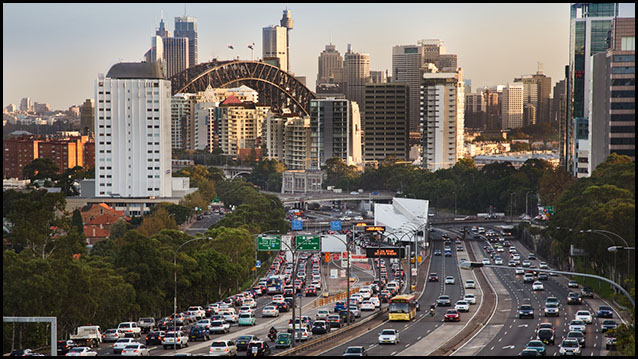784 Public transport too dear
Forget terrorism, the real terror takes place on our roads, and that is not even counting the death toll (we put up with that as collateral damage): “Worst road toll in six years”. “The true cost of toll rebate $1.5b and counting”. “New push to require cleaner cars, fuel”. And: “Our traffic is slower than New York’s”. Shock, horror!

The first headline we shrug our shoulders over, the others describe the horror of living in a city that becomes too unfriendly for many and for some impossible to live in; my daughter just moved her family to country NSW because her husband - leaving for work between 9am and 10am and coming home around 8pm - still spent an hour each way in traffic (they’re lucky; he now works “satellite”, via the internet).
Then today the cinch: “Opal switch hits roads”. Buried in the story - public transport use plummets when fares are raised - is the radical solution that can re-elevate Sydney to the top of the list of the “best cities” in the world: It’s a no-brainer, curtailing public transport with too-high fares is in nobody’s interest, not even in the pollies’ interest; not even those pollies’ and technocrats who have to balance the budget.
How much can it cost to lower the cost of public transport - at least of that into the city - to near zero? A billion a year? Two, three, four?
On the other hand, how much do those horrendous new roads cost? How much does it cost to manage the Opal system? How much is the dollar figure on environmental degradation, loss of civic amenity, lost productivity through workers stuck in traffic and the health cost for them arriving at work stressed? What is the dollar value for a city that is welcoming to and easy to traverse for visitors (just imagine the boost to tourism with free city public transport)? What is the value of our sanity?
All combined I reckon more than a few billion dollars; and throw into the mix a congestion tax for motorists entering the city, the costs could well end up balanced.